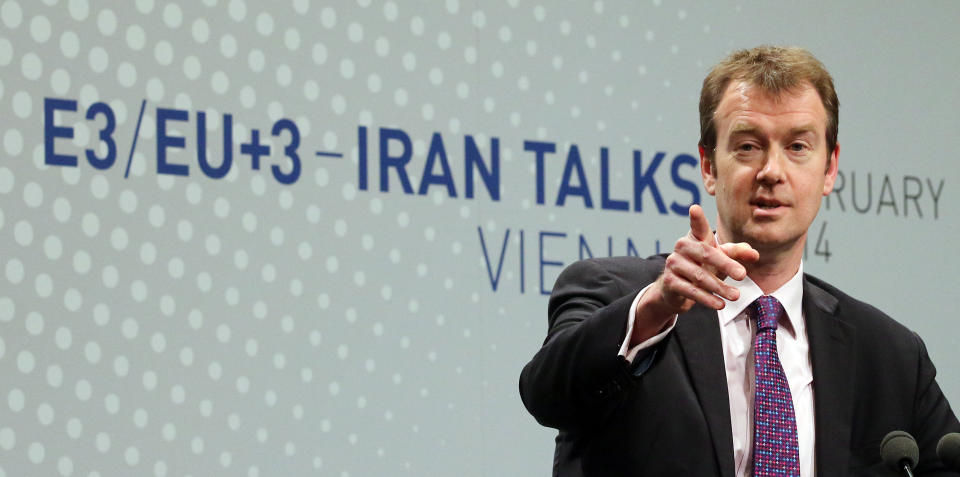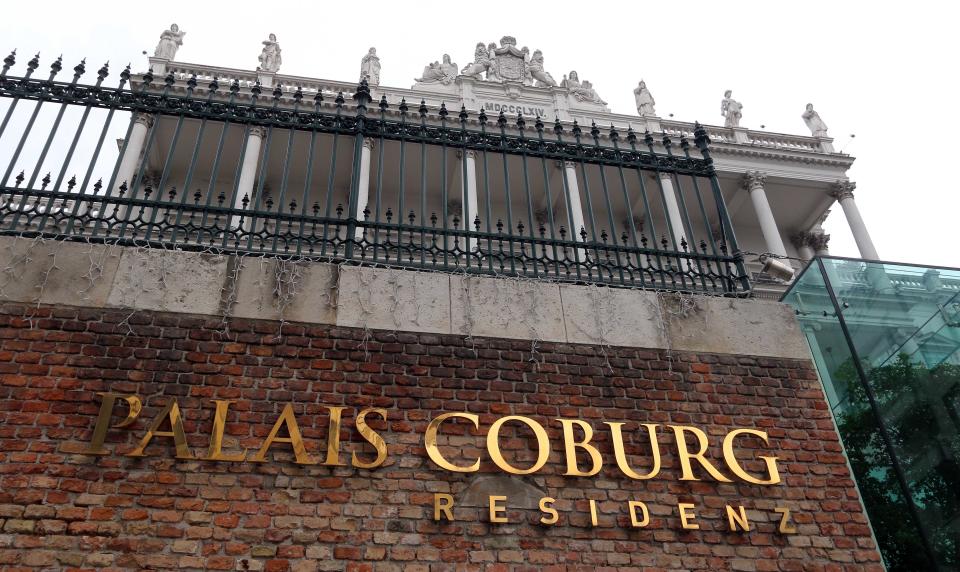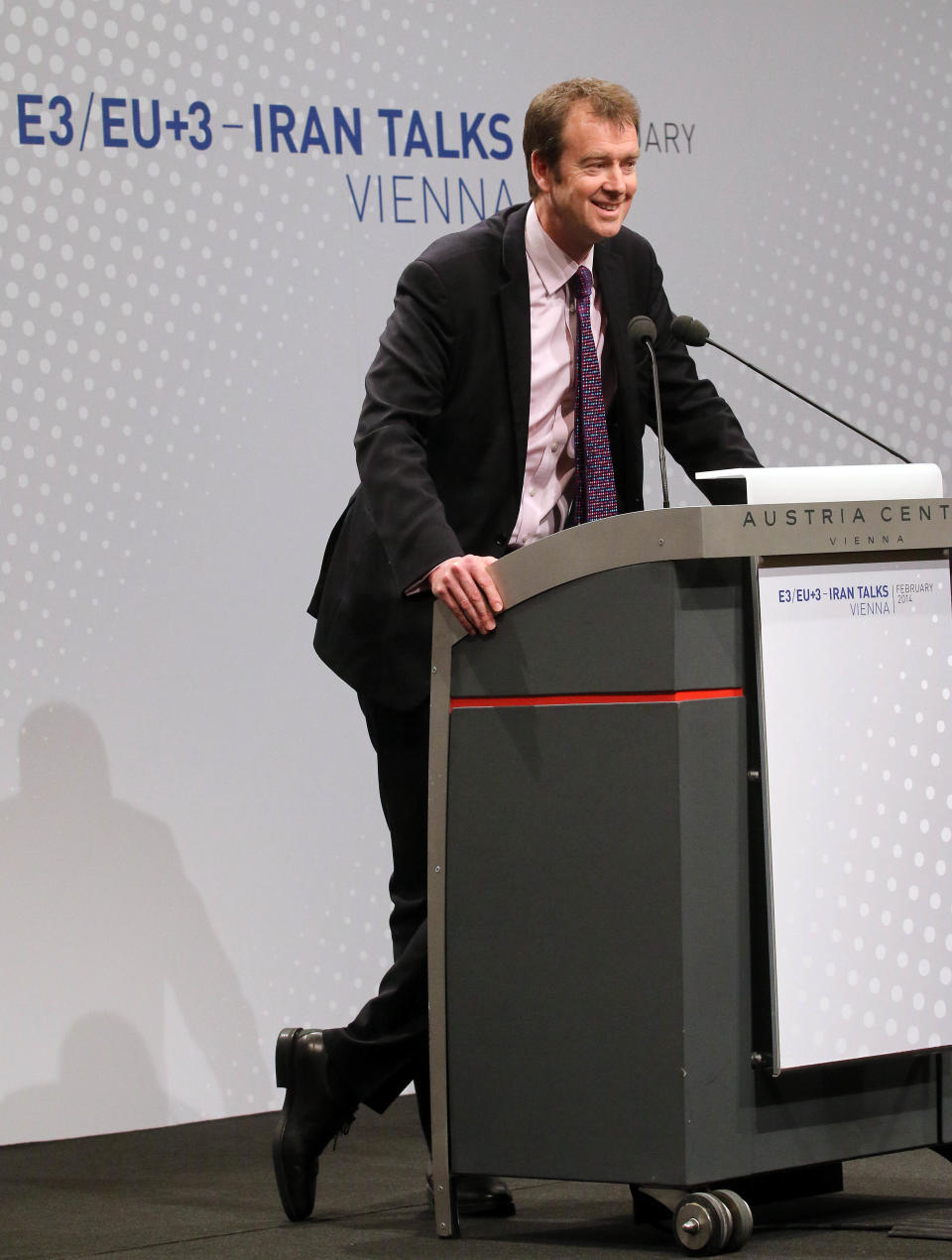Iran pressures its negotiators at nuclear talks
VIENNA (AP) — As Iran negotiated about a nuclear pact Tuesday, the country's top leader ordered his government to take precautionary steps in case the talks fail and the head of the Revolutionary Guards warned the Iranian negotiators against concessions that could tarnish the nation's pride.
The comments by Ayatollah Ali Khamenei and the commander of the Guards, Gen. Mohammad Ali Jafari, reflected the difficulties faced by Iranian negotiators on the talks' second day. They are bargaining with six world powers for a full end to sanctions while trying to salvage their country's nuclear program.
The six countries want a deal that shrinks the Islamic Republic's nuclear program to a point that minimizes its ability to be turned toward making a nuclear weapons. Iran says it does not want such arms, but is under harsh economic pressure to agree to concessions that would scrap sanctions that have not already been partially lifted.
Unless Tehran is prepared to see the talks fail, it will be forced into some compromises. But with the second round of the Vienna negotiations just getting underway, top Iranian officials were pushing their negotiators to be demanding.
Two days after saying he thought the talks would fail, Khamenei on Wednesday ordered his government to brace for such a scenario. He advised it to create an "economy of resistance" to counter the sanctions.
That would involve diversifying Iran's exports, reducing its dependence on sales of raw materials, and promoting knowledge-based high-tech industries.
Jafari, the commander of the Guards, warned Iranian negotiators to preserve "red lines of the establishment ... so that the national pride is not damaged."
On Tuesday, Iran Deputy Foreign Minister Abbas Araghchi said his country would not buckle to pressure from the U.S. and five other world powers to scrap any of its nuclear facilities.
The talks are designed to build on a first-step deal that came into effect last month and commits Iran to initial curbs on its nuclear program in return for some easing of sanctions. The deal can be extended, if both sides agree to do so after six months.
The United States, Russia, China, Britain, France and Germany seek an agreement that will leave Iran with little capacity to quickly ramp up its nuclear program into weapons-making mode with enriched uranium or plutonium, which can be used for the fissile core of a missile.
For that, they say Iran needs to dismantle or store most of its 20,000 uranium enriching centrifuges, including some of those not yet working. The six powers also demand that an Iranian reactor being built be either scrapped or converted from a heavy-water setup to a light-water facility that makes less plutonium.
Top EU foreign envoy Catherine Ashton — who is convening the Vienna talks — is scheduled to attend an EU foreign ministers' meeting in Brussels on Thursday.
That means the current round of talks, which began Tuesday, are likely to end early on Thursday.




